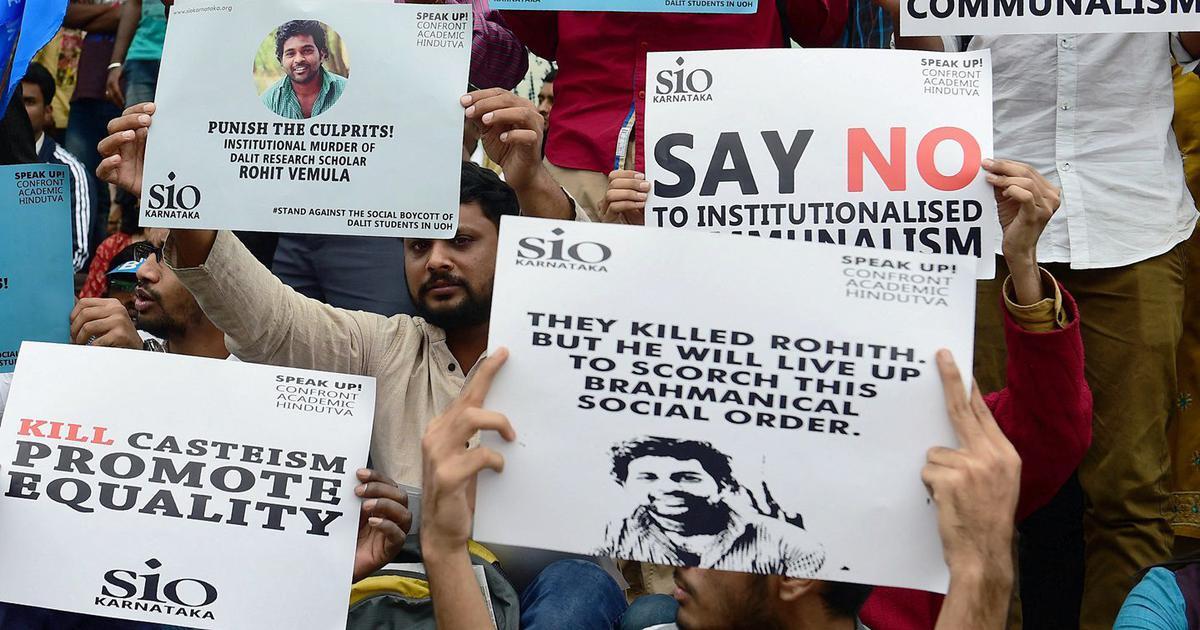In August 2019, Radhika Vemula and Abeda Salim Tadvi, mothers of students Rohith Vemula and Payal Tadvi—who tragically died by suicide following alleged caste-based discrimination—filed a public interest litigation (PIL) in the Supreme Court of India. Their petition sought the enforcement of the University Grants Commission’s (UGC) 2012 anti-discrimination regulations aimed at safeguarding vulnerable students in higher education institutions.
The 2012 UGC Regulations
The UGC’s 2012 regulations were designed to promote equity in higher educational institutions by:
-
Establishing Equal Opportunity Cells (EOCs): Mandating universities to create EOCs to address and prevent discrimination.
-
Appointing Anti-Discrimination Officers: Requiring the designation of officers responsible for investigating complaints related to discrimination.
-
Defining Discrimination: Providing clear definitions and examples of discriminatory practices to ensure comprehensive understanding and compliance.
Despite these provisions, reports indicated that implementation was inconsistent, with many institutions failing to establish the mandated bodies or effectively address discrimination complaints.
The Supreme Court’s Involvement
Responding to the PIL, the Supreme Court directed the UGC to detail the steps taken to create a non-discriminatory environment for students from Scheduled Castes (SC) and Scheduled Tribes (ST). The Court emphasized the necessity of robust anti-discrimination mechanisms in higher education institutions.
Release of Draft Regulations in 2025
In February 2025, the UGC released draft regulations titled “UGC (Promotion of Equity in Higher Educational Institutions) Regulations, 2025,” intended to replace the 2012 guidelines. These draft regulations introduced several changes:
-
Broad Definition of Discrimination: The new draft offers a generalized definition of discrimination, lacking the detailed examples provided in the 2012 regulations.
-
Consolidation of Discrimination Forms: The draft combines various forms of discrimination—including those based on gender, disabilities, religion, and caste—under a single framework, potentially diluting the focus on caste-based issues.
-
Exclusion of Other Backward Classes (OBCs): The proposed regulations continue to exclude OBC students from their scope, addressing only SC and ST communities, despite evidence of discrimination faced by OBC students.
-
Penalties for False Complaints: The introduction of fines for false complaints has raised concerns about deterring genuine grievances.
Criticism and Concerns
The draft regulations have faced criticism from various stakeholders:
-
Families of Victims: Radhika Vemula and Abeda Salim Tadvi expressed that the new regulations dilute existing protections and may complicate redressal mechanisms.
-
Legal Experts: Senior Advocate Indira Jaising highlighted the UGC’s failure to enforce compliance with anti-discrimination measures, citing alarming statistics of student suicides linked to caste-based discrimination.
-
Activists and Academicians: Concerns have been raised about the vagueness of the new definitions and the potential for institutions to dismiss legitimate complaints, thereby perpetuating discrimination.
Conclusion
The UGC’s attempt to revise anti-discrimination regulations has sparked a debate on the effectiveness and intent of such changes. While the aim may be to streamline and strengthen protections, the perceived dilution of specific provisions raises questions about the commitment to addressing caste-based discrimination in higher education. It is imperative for the UGC to engage with stakeholders, including marginalized communities, legal experts, and academicians, to ensure that the regulations effectively promote equity and safeguard the rights of all students.
Sponsored
FACTS Transcripts
Apply for a University document anywhere
https://www.factstranscript.com
Quick Transcripts for popular Universities, check your University name now and get started. We help you to get your transcript application online which is accepted for use of IRCC.
No DD, NO Paperwork. 100% Authentic, Reliable.
FACTS Transcripts Charges · Reviews · Assam Universities · Home · Know your University










